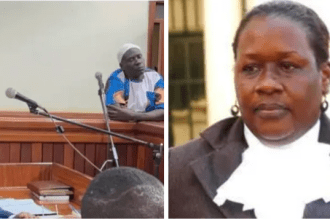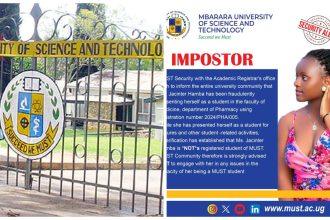Bailiffs secured the exit door of Medipal International Hospital as a result of a dispute between the building owner, Tembo Steels, and the hospital, which failed to pay over Shs1.3 billion in rent from September 2022 to May 2023. The aftermath of the judge’s decision has generated mixed reactions, with concerns raised about potential exploitation by landlords, especially during challenging times.
The High Court in Kampala, led by Justice Musa Ssekaana, recently ruled in favor of a landlord, Francis Drake Lubega, who reclaimed a shop from tenant Ruth Nalubega and her firm, Nyonyi Traders. Nalubega had not paid rent for six months, leading to the legal dispute. Justice Ssekaana emphasized that landlords have the right to break into and reoccupy premises left locked by tenants who unreasonably fail to pay rent for an extended period.
While the ruling does not specify a defined timeframe for reasonable default, it places the responsibility on tenants to meet their rent obligations. Justice Ssekaana condemned the practice of tenants locking premises without payment, noting that landlords should not be burdened with chasing defaulters indefinitely.
The decision is expected to be a relief for landlords, streamlining the process of repossessing premises from defaulting tenants and potentially deterring unreasonable practices. Additionally, it may expose tenants who vacate premises, leaving them locked or with low-value items.
Chasing Arrears
Court records reveal that Ruth Nalubega rented a shop in Farmers Centre, Container Village, Kampala. During the pandemic lockdowns, she accumulated rent arrears of Shs2.3 million for six months. Nalubega sued Lubega, claiming her shop was forcefully entered, merchandise taken, and the store given to another tenant. However, the court sided with Lubega, stating that Nalubega had abandoned her shop during the lockdown without notice.
Six months later, Lubega, with local council officials, broke into the shop, removed Nalubega’s property, and reassigned the space. Nalubega paid the arrears the next day, but Justice Ssekaana deemed it a cover-up for her default. He highlighted that Lubega’s actions did not constitute breaking in with the intention of permanent possession, dismissing Nalubega’s claim for damages.
KACITA Reacts
Issa Ssekito, spokesperson for the Kampala City Traders Association, opposed the ruling, expressing concern about its potential misuse by landlords during challenging circumstances like the COVID-19 pandemic.
What the Law Says
The Landlord and Tenants Act, 2022, signed by President Museveni on April 12, 2022, outlines the rights and responsibilities of both parties. It empowers landlords to seek court intervention for rent recovery, allows re-entry after 30 days of default, and enforces proper eviction procedures. The act emphasizes the importance of communication, requiring landlords to provide bank account details and tenants to receive eviction notices.




















